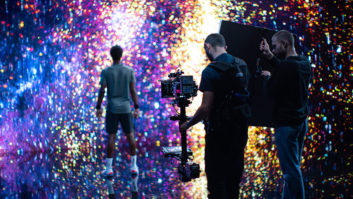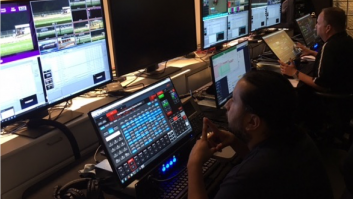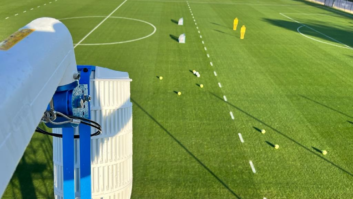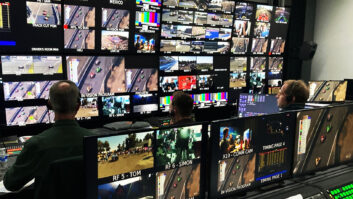
Major sports producers are looking hard at introducing AI technology into sports production. That was one strong trend that emerged from a panel of sports producers talking at an IBC Conference session looking at advances in sport technology [17 September].
Dan Miodownik, chief content officer, Host Broadcast Services, which is host broadcaster for the FIFA World Cup 2018, said: “It’s certainly coming, and quicker than we think. In automated production, where speed to air is more important than the finesse of the edit, it certainly speeds up production.
“But I do have a question over using AI in more complex narratives. At the World Cup you can go in at half-time and have a talk to the director about how it’s going.
But you can’t talk to a machine!”
Global director of engineering and technology at IMG Media, David Shield, said: “We are certainly looking at AI for the manual logging process. Sports such as
Grand Slam tennis still have a lot of associated automated metadata and AI could use facial recognition and audio recognition to do a pretty good job of logging – a process currently carried out by humans.
“Could we look at the role of a VT co-ordinator or EVS operator and automate that whole process? A lot of sports production is quite formulaic,” said Shield.
Automation of shot selection could work for lower league football or cricket, added Shield. “I don’t think major events such as the Olympics or the World Cup are going to be doing that, but for lower leagues you could look at introducing AI into editing.”
One of the big trends in live sports is the growth in streaming, said HBS’s Miodownik. “Next year you will see a big jump in live streaming – as distinct from post produced sport.”
Miodownik confirmed that next year’s World Cup coverage would be “a single match cut of Ultra HD HDR [from which other formats including 1080P and 1080i will be produced] to get away from parallel production.”
The discussion about 4K at the World Cup has been interesting, said Miodownik. “Originally when we went out and talked to broadcasters about live 4K, they said that isn’t going to happen. But now that’s changed and there is a lot more talk about 4K.”
Shields said that deciding on delivery formats for large sports events was increasingly becoming a logistical minefield.
Said Shields: “Going forwards, we are trying to find exactly what the demand is for different formats. If we spend a lot of money doing 4K production, we have to be sure that people are actually going to use it.”







